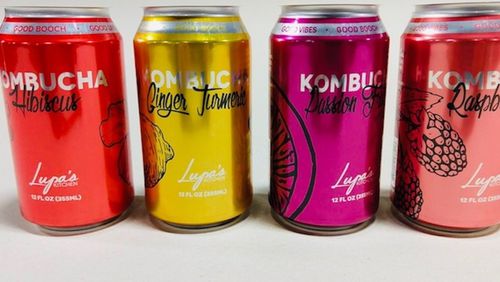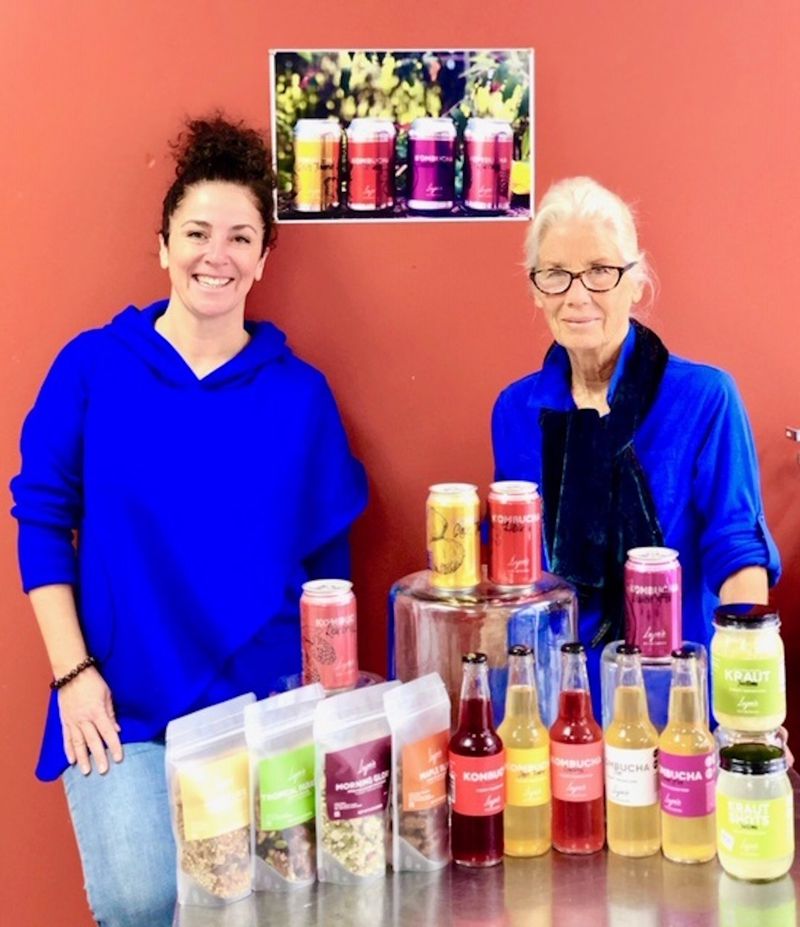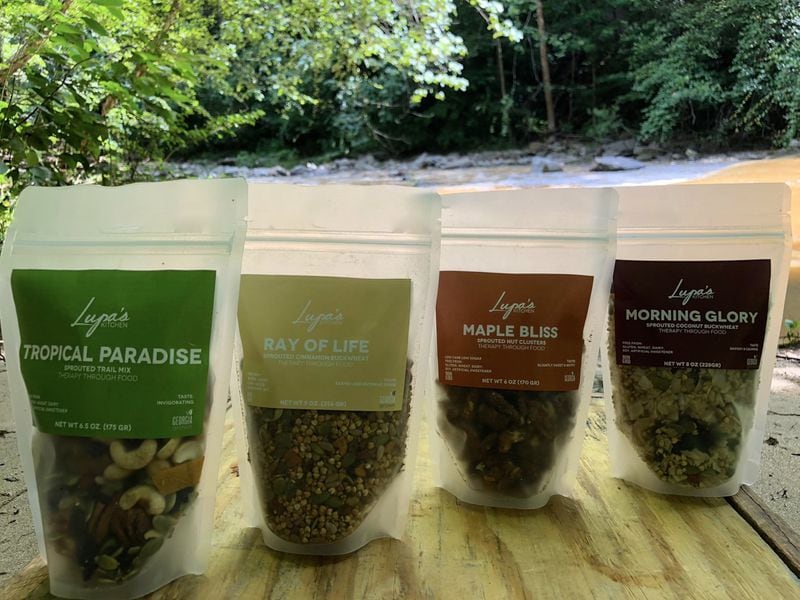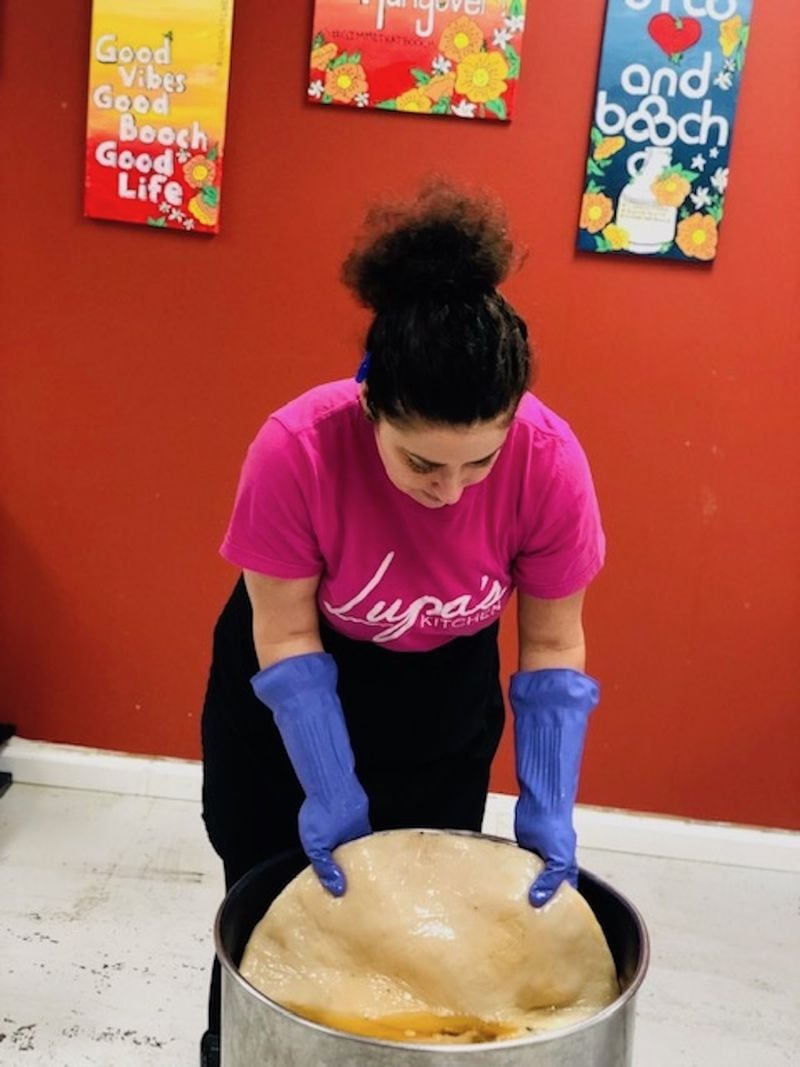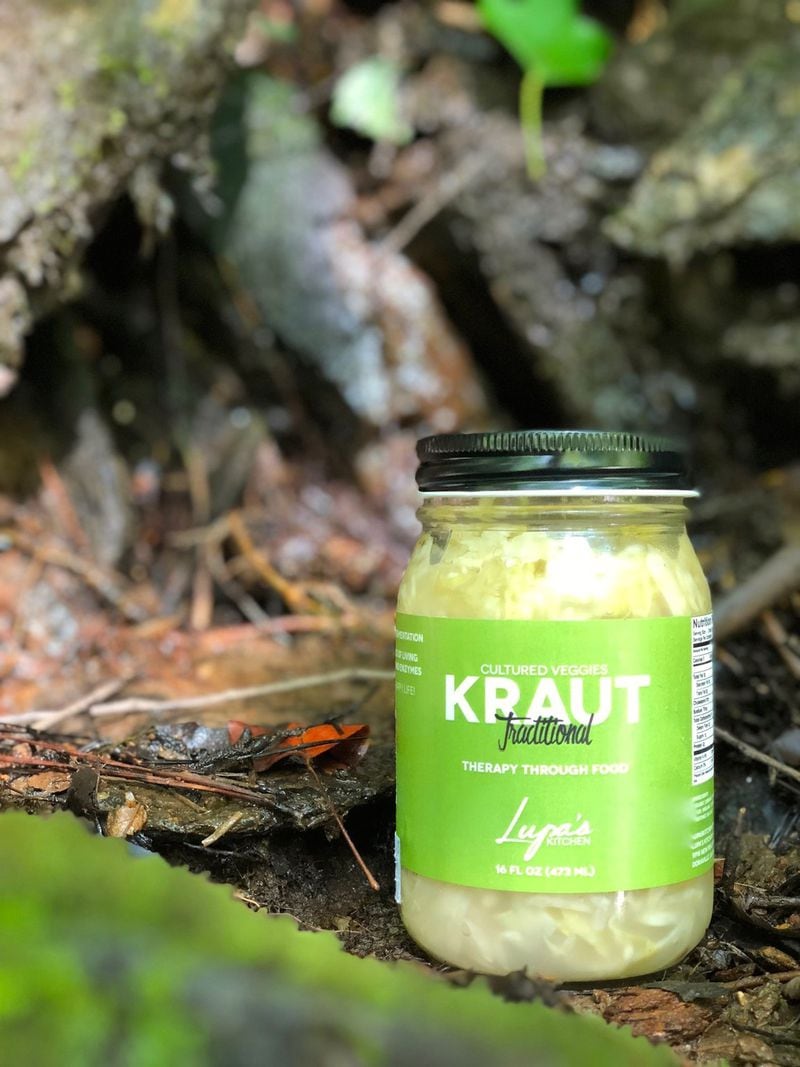It all started with trail mix.
Naturopath Lupa Irie of Lupa's Kitchen is a student of natural remedies. After learning that sprouting seeds, nuts and grains would make their nutrients more accessible, she was inspired to sprout buckwheat and pumpkin seeds and mix them with coconut flakes, raisins and other ingredients to make a trail mix she called Morning Glory. Sprouted buckwheat seeds plus cinnamon, currants, dried apple slices, walnuts, chia seeds and goji berries became a mix she named Ray of Life.
She sold her mixes at local farmers markets and then at health food stores. Irie had been brewing kombucha since the 1990s, so she soon added that to her product mix, then sauerkraut.
“We use traditional food preparation techniques, just as our ancestors did,” Irie said. “These methods make the nutrients in our food more accessible.” Her motto, printed on each package, is “Therapy Through Food.”
Daughter Claire, who joined her mom in 2013, said: “I wanted to see my mom achieve her dream. I said, ‘Let’s see what we can do in a year.’ This has always been a passion for her. Starting Lupa’s Kitchen was never about creating a business. It was about sharing her passion with other people.”
That one year has stretched to six. The trail mixes have been in Whole Foods Market stores since 2013. The original two flavors soon were joined by two more, Maple Bliss and Tropical Paradise. But the kraut and kombucha were available only at farmers markets.
Then, two years ago, they decided to make their kombucha available commercially, and, later in January, Lupa’s Kitchen will become the first Georgia company offering kombucha in cans. It will be available in raspberry, ginger turmeric, passion fruit and hibiscus.
“We’re very excited about the canned kombucha, which we introduced at Bonnaroo this year,” Claire Irie said. “The cans are easily recyclable, easy to transport, and the kombucha still tastes great. You can take it to places you can’t take glass, like parks and music venues.”
Lupa’s Kitchen brews, sprouts and mixes inside a small commercial building in the shadow of the Doraville MARTA station.
There are just three people on the team: the Iries and Cessy Lopez. The kombucha brewing room is lined with 30- and 50-gallon stainless steel fermenters. In the back of the room is a nursery for all the scobys needed for the week’s production. (“Scoby” is an acronym for “symbiotic culture of bacteria and yeast,” and is the living host for the bacteria that turn tea and sugar into kombucha.)
“Kombucha is a living organism, and we really do find it enjoys a calm environment,” Lupa Irie said. “We tell them ‘good morning’ when we come in. We really notice a difference in the way the kombucha tastes, and how it reacts, if we’re stressed when we start a new batch.”
There’s a separate room for soaking and drying the seeds, nuts and grains that go into their trail mixes. “People don’t realize it takes 48 hours to make our Maple Bliss mix,” Claire said. “The walnuts and pecans are germinated, then dehydrated, then we add the flavors and dehydrate again. The germinating really makes a difference. If you taste the nuts after we’re done, you’ll find there’s a liveliness and crispness that wasn’t in the raw nuts.”
For each batch of sauerkraut, Lupa hand slices the 40 pounds of cabbage, using a large wooden mandolin. “I like really thin strands, and this is the way to control that,” she said.
The strands are sprinkled with salt as they go into one or more of the 5- to 20-gallon crocks the family has collected in its years of fermenting vegetables. Lupa uses a 24-inch-long kraut pounder to press the mixture in the crock until the cabbage is covered with a brine that forms from cabbage juice and salt. Then, the kraut is left to ferment, which turns the cabbage into a probiotic-rich cultured vegetable.
It’s a business they’ve truly built by hand, but the Iries are quick to credit many people for helping along the way, including those who allow them to maintain flexible second jobs. Lupa works as a private chef, Claire as a catering captain, and they jointly teach classes on healthy eating.
They also give special thanks to the late Richard Thomas of R. Thomas Deluxe Grill in Buckhead. “Richard was the first person in Atlanta to give us a shot,” Claire said. “He put our Morning Glory on his weekly deliveries of products to local health food stores. We would not be where we are without Richard.”
RELATED:
Read more stories like this by liking Atlanta Restaurant Scene on Facebook, following @ATLDiningNews on Twitter and @ajcdining on Instagram.
About the Author
